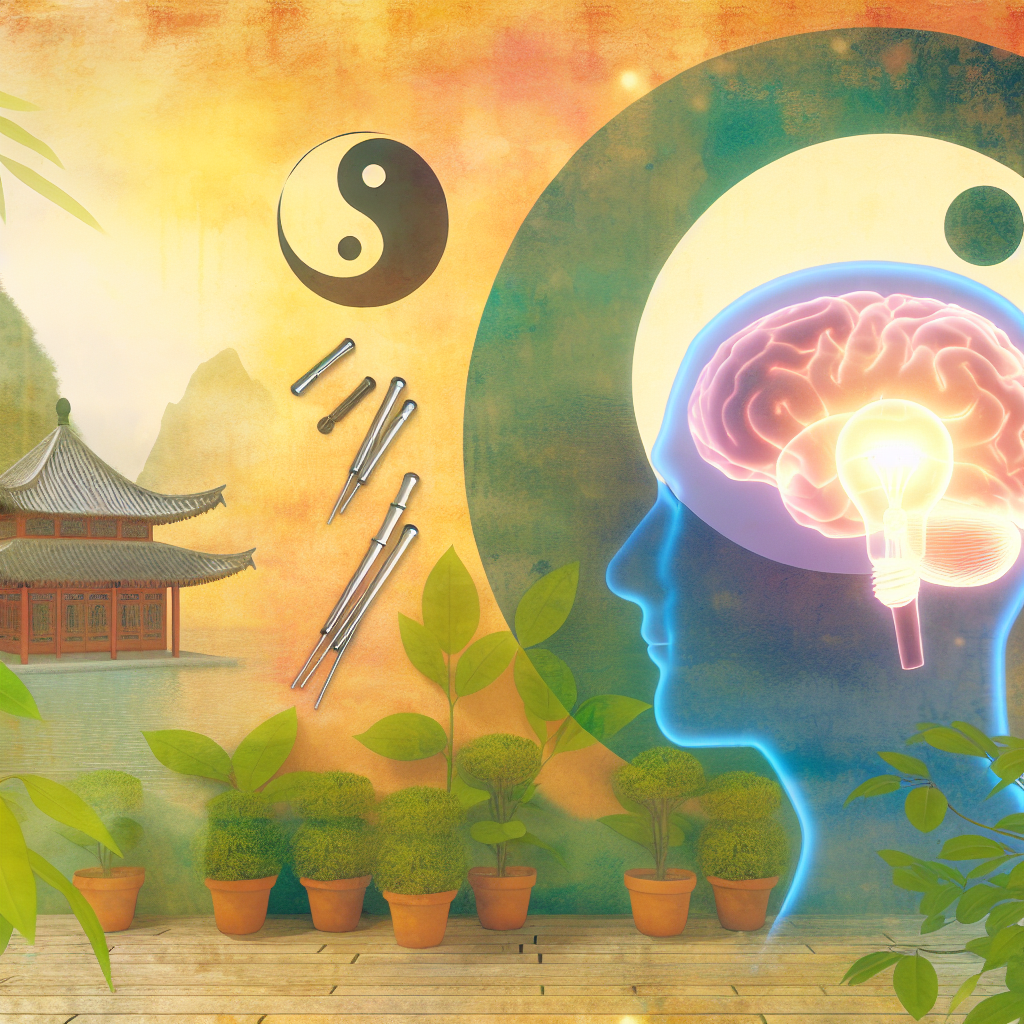Eastern Medicine for Mental Health: Clinical Evidence
Introduction
Mental health disorders, including anxiety, depression, and stress-related conditions, are becoming increasingly prevalent in modern society. Traditional treatment methods primarily revolve around pharmaceutical drugs and psychotherapy. However, with concerns over side effects, dependency, and the effectiveness of mainstream treatments, many individuals are looking toward Eastern medicine for natural alternatives to support mental well-being.
Eastern medicine, encompassing Traditional Chinese Medicine (TCM), Ayurveda, and other holistic healing systems, has been used for centuries to treat mental health conditions. These practices emphasize balance, energy flow (Qi or Prana), and natural healing agents such as herbal remedies, acupuncture, and meditation to restore emotional and psychological well-being. Unlike conventional medicine, which often isolates symptoms and targets specific neurotransmitters, Eastern medicine focuses on achieving harmony within the body and mind.
One of the core principles of Eastern medicine is the belief that mental health conditions stem from an imbalance in natural energies or bodily systems. In TCM, for example, the Liver and Heart are often associated with emotional disturbances, while Ayurveda identifies imbalances in the three doshas—Vata, Pitta, and Kapha—as central to psychological disorders. Addressing these imbalances with customized herbal treatments, dietary adjustments, and lifestyle modifications helps regulate emotions and mental clarity.
Scientific interest in Eastern medicine’s impact on mental health has surged in recent years. Studies have demonstrated that treatments such as acupuncture, adaptogenic herbs, and traditional mind-body practices can effectively reduce symptoms of stress, anxiety, and depression. Unlike pharmaceutical drugs, these remedies often work holistically, enhancing an individual’s overall wellness while addressing underlying conditions.
With increasing clinical evidence supporting the efficacy of Eastern medicine, integrating these therapies with conventional mental health treatments is becoming more common. Many healthcare professionals recognize the potential of acupuncture, herbal medicine, and meditation in complementing Western psychiatric care to enhance patient outcomes. This article explores the clinical evidence surrounding Eastern medicine’s role in mental health treatment, highlighting professional and medical studies that validate its effectiveness.
Clinical Evidence Supporting Eastern Medicine for Mental Health
In recent years, numerous scientific studies have examined the effectiveness of Eastern medicine in managing mental health conditions. Many of these studies provide compelling evidence that traditional practices such as herbal medicine, acupuncture, and mindfulness can be effective in alleviating anxiety, depression, and stress-related disorders.
Acupuncture: A Time-Tested Solution for Mental Well-Being
Acupuncture, a core component of Traditional Chinese Medicine (TCM), has been studied extensively for its impact on mental health disorders. Research published in *The Journal of Acupuncture and Meridian Studies* found that acupuncture stimulates the release of endorphins and serotonin, neurotransmitters responsible for mood regulation, relaxation, and stress relief. Another study in *The Journal of Alternative and Complementary Medicine* demonstrated that acupuncture significantly reduces symptoms of generalized anxiety disorder (GAD), with patients reporting improved sleep quality and reduced stress levels ([1](https://www.liebertpub.com/doi/10.1089/acm.2014.0202)).
Moreover, a randomized controlled trial conducted by the University of York in the UK found that acupuncture was as effective as counseling for patients suffering from moderate to severe depression. The findings, published in *PLoS Medicine*, showed significant improvements in depressive symptoms within three months of acupuncture treatment ([2](https://journals.plos.org/plosmedicine/article?id=10.1371/journal.pmed.1001518)).
Herbal Remedies: Natural Solutions for Anxiety and Depression
Several Eastern herbs have been studied for their potential benefits in reducing stress, anxiety, and depression. One such herb is Rhodiola rosea, an adaptogen used in both Ayurveda and TCM that helps the body resist stress. A study published in *Phytomedicine* found that this adaptogenic herb significantly reduced symptoms of anxiety and mental fatigue in participants undergoing stress-related conditions ([3](https://www.sciencedirect.com/science/article/abs/pii/S0944711315000723)).
Another widely researched herbal remedy is Ashwagandha (Withania somnifera), a potent Ayurvedic herb known for its anxiolytic properties. Clinical trials published in *The Journal of Clinical Psychiatry* confirm that Ashwagandha significantly reduces cortisol levels—the body’s primary stress hormone—leading to lower anxiety and improved mental resilience ([4](https://pubmed.ncbi.nlm.nih.gov/23439798/)).
In Traditional Chinese Medicine, Xiao Yao San, a well-known herbal formula, has been used to stabilize mood disorders. A meta-analysis in *Evidence-Based Complementary and Alternative Medicine* found that Xiao Yao San was as effective as conventional antidepressants but with fewer side effects ([5](https://www.hindawi.com/journals/ecam/2012/931636/)).
Meditation and Mindfulness: Eastern Practices for Emotional Balance
Eastern practices such as mindfulness-based meditation, Qi Gong, and Tai Chi have been studied for their psychological benefits. A seminal study published in *JAMA Internal Medicine* reviewed over 47 randomized controlled trials and found that mindfulness meditation significantly improved symptoms of anxiety and depression ([6](https://jamanetwork.com/journals/jamainternalmedicine/fullarticle/1809754)).
Furthermore, a study by Harvard Medical School demonstrated that consistent mindfulness meditation practices physically alter brain structures associated with stress and emotional regulation. Participants who engaged in mindfulness meditation for eight weeks showed increased gray matter density in the hippocampus, the part of the brain responsible for emotion and memory processing ([7](https://www.ncbi.nlm.nih.gov/pmc/articles/PMC3004979/)).
These clinical studies validate the effectiveness of Eastern medicine in managing mental health disorders, positioning it as a viable complementary approach to conventional treatments.
Conclusion: The Future of Integrative Mental Health Care
Eastern medicine provides a holistic and natural approach to mental health care, incorporating time-tested practices such as acupuncture, herbal medicine, and meditation. Clinical evidence increasingly supports these methods, demonstrating their efficacy in managing stress, anxiety, and depression. Notably, acupuncture has been shown to stimulate mood-boosting neurotransmitters, herbal remedies like Ashwagandha and Rhodiola help balance stress hormones, and traditional mindfulness practices offer tangible improvements in emotional well-being.
As the medical community becomes more open to integrated healthcare models, the potential for combining Eastern medicine with conventional treatments is promising. While pharmaceutical interventions remain important in treating severe mental health conditions, Eastern medicine offers a complementary path that prioritizes mental balance, minimal side effects, and long-term emotional resilience.
For those seeking natural and holistic approaches to mental health, exploring Eastern medicine’s rich and scientifically backed treatments can be a valuable step toward achieving lasting well-being. As research continues, the bridge between traditional healing and modern science will only strengthen, offering patients the best of both worlds in a pursuit of mental harmony.
Summary:
The article explores the clinical evidence supporting the use of Eastern medicine, including traditional Chinese medicine, Ayurveda, and other holistic practices, for managing mental health conditions such as anxiety, depression, and stress-related disorders. It highlights studies demonstrating the efficacy of acupuncture, herbal remedies, and meditation in alleviating symptoms and improving overall emotional well-being. The article advocates for the integration of Eastern and conventional approaches to mental health care, recognizing the potential of these traditional practices as a complementary and natural solution to modern mental health challenges.

Dominic E. is a passionate filmmaker navigating the exciting intersection of art and science. By day, he delves into the complexities of the human body as a full-time medical writer, meticulously translating intricate medical concepts into accessible and engaging narratives. By night, he explores the boundless realm of cinematic storytelling, crafting narratives that evoke emotion and challenge perspectives.
Film Student and Full-time Medical Writer for ContentVendor.com




